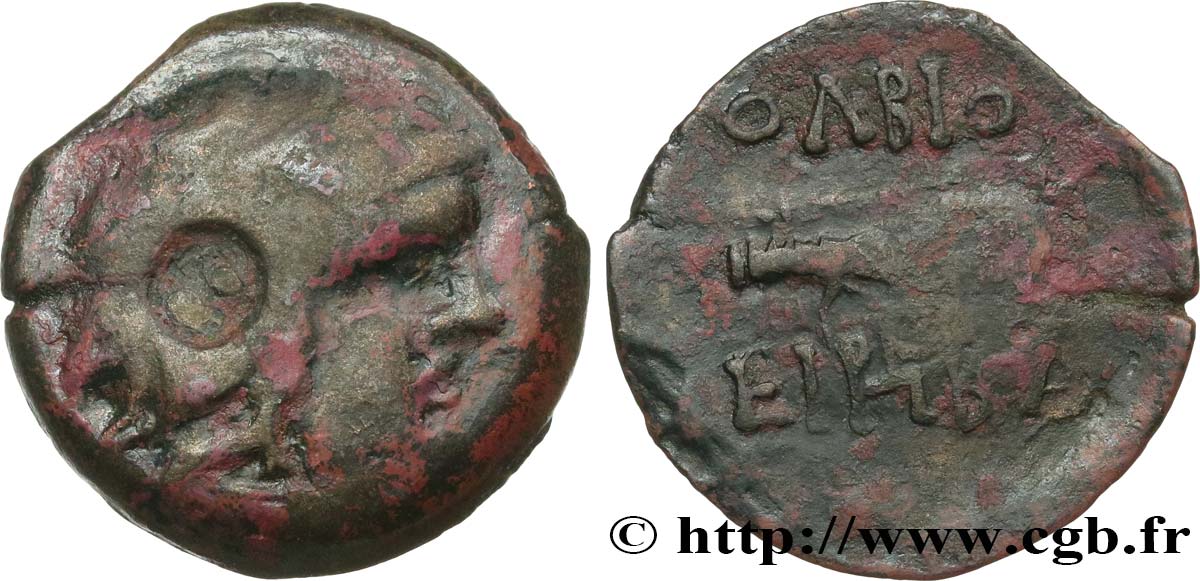E-auction 415-326748 - bgr_591801 - SKYTHIA - OLBIA Unité
You must signin and be an approved bidder to bid, LOGIN TO BID. Accounts are subject to approval and the approval process takes place within 48 hours. Do not wait until the day a sale closes to register. Clicking on « bid » constitutes acceptance of the terms of use of cgb.fr private e-auctions.
Bids must be placed in whole Euro amounts only. The sale will start closing at the time stated on the item description; any bids received at the site after the closing time will not be executed. Transmission times may vary and bids could be rejected if you wait until the last second. For further information ckeck the E-auctions F.A.Q.
NO BUYER'S FEE.
NO BUYER'S FEE.
| Estimate : | 150 € |
| Price : | 57 € |
| Maximum bid : | 60 € |
| End of the sale : | 29 March 2021 14:00:30 |
| bidders : | 7 bidders |
Type : Unité
Date: c. 160-150 AC
Mint name / Town : Olbia, Scythia
Metal : copper
Diameter : 23 mm
Orientation dies : 12 h.
Weight : 7,19 g.
Rarity : R2
Coments on the condition:
Exemplaire sur un flan irrégulier bien centré à l’usure importante mais parfaitement lisible et identifiable. Patine marron avec de petites oxydations rougeâtres
Catalogue references :
Predigree :
Cet exemplaire provient du stock d’Hubert Lanz, Münich en 2014
Obverse
Obverse description : Tête imberbe d’Héraklès à droite coiffée de la léonté, une contremarque sur la léonté.
Reverse
Reverse description : Massue tournée à droite.
Reverse legend : OLBIO/ EIRHBA
Reverse translation : (Olbia/ Eiréba).
Commentary
Au droit, la contremarque semble bien être une tête ou un buste casqué comme sur l’exemplaire de la collection Stancomb ou bien celle du British Museum.








 Report a mistake
Report a mistake Print the page
Print the page Share my selection
Share my selection Ask a question
Ask a question Consign / sell
Consign / sell





